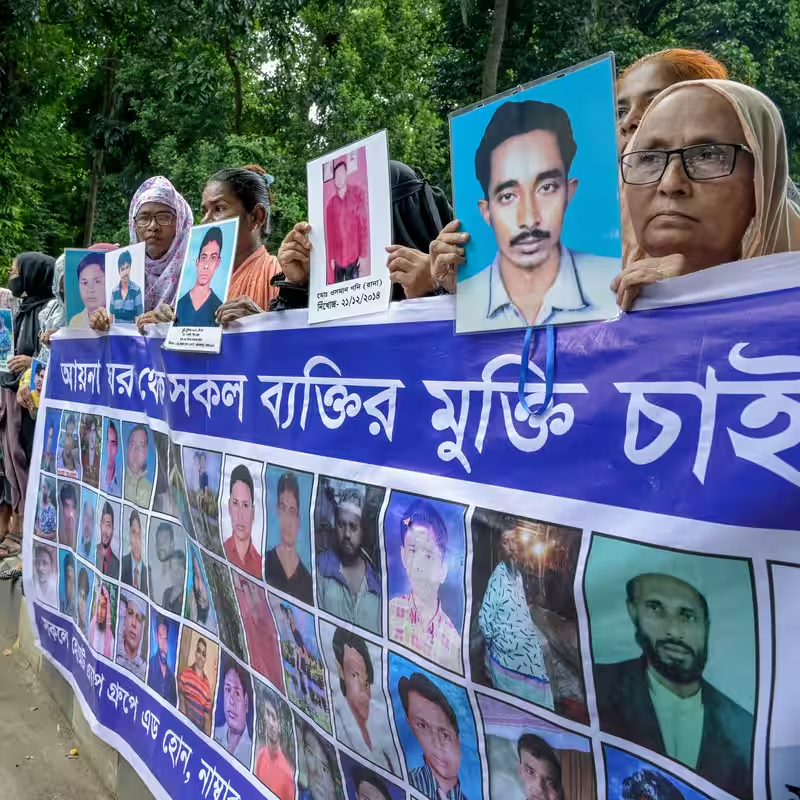Table of Contents
- Bangladesh Military Purge: A New Chapter?
- International Crimes Tribunal Steps In
- Sheikh Hasina in Exile: Will Justice Catch Up?
- Political Tensions Rise Ahead of 2026 Elections
- Sources
Bangladesh Military Purge: A New Chapter?
In a dramatic turn of events, Bangladesh’s military has detained more than a dozen of its own officers over alleged human rights abuses committed during the 15-year rule of former Prime Minister Sheikh Hasina. The move, announced Saturday by army officials, marks one of the most significant internal crackdowns since Hasina’s ouster in August 2024.
According to Maj. Gen. Md Hakimuzzaman, spokesperson for the Bangladesh Army, at least 14 active-duty officers and one nearing retirement are now in military custody. These detentions follow arrest warrants issued by the country’s International Crimes Tribunal against 32 individuals—including Hasina herself—accused of crimes ranging from enforced disappearances and torture to unleashing deadly force on protesters.
What Led to the Crackdown?
The warrants stem from a wave of unrest that culminated in Hasina’s abrupt departure from the country last year. Over 1,400 people reportedly died during the protests that forced her into exile in India. Now, under the interim leadership of Nobel laureate Muhammad Yunus, Bangladesh is attempting to reckon with its recent authoritarian past.
International Crimes Tribunal Steps In
Despite its name, the International Crimes Tribunal is a domestic court established to expedite prosecutions for serious offenses. Originally created under Hasina’s government to target political opponents, the tribunal is now turning its focus toward her inner circle.
Among those named in the latest warrants:
- Sheikh Hasina – Former Prime Minister
- Maj. Gen. Kabir Ahmed – Her former military secretary
- Multiple current and former security officials
Charges include abduction, torture, and orchestrating violent crackdowns on dissent. Many of the accused have either fled the country or gone into hiding—Hasina included.
Sheikh Hasina in Exile: Will Justice Catch Up?
Currently residing in India, Hasina remains beyond the reach of Bangladeshi authorities. New Delhi has so far declined to respond to extradition requests, leaving her legal fate uncertain.
Critics argue the tribunal’s actions are politically motivated, especially given its controversial history under Hasina’s own administration. Members of her Awami League party have accused the interim government of using the court for score-settling rather than genuine justice.
Political Tensions Rise Ahead of 2026 Elections
With national elections scheduled for February 2026, Bangladesh stands at a fragile crossroads. The interim administration, led by Muhammad Yunus, faces mounting pressure to ensure a fair and transparent democratic transition.
Observers warn that the current wave of arrests—while symbolically powerful—could deepen political polarization if perceived as one-sided. The military’s involvement adds another layer of complexity, raising questions about the balance of power in a nation still healing from years of authoritarian rule.
What Comes Next?
Legal experts suggest that while the detained officers may face swift military tribunals, prosecuting high-profile figures like Hasina remains unlikely without international cooperation. For now, the arrests serve as both a reckoning and a warning: Bangladesh’s past may finally be catching up with its powerful elites.
Sources
The New York Times: Bangladesh Detains Army Officers Accused of Crimes Under Previous Regime




